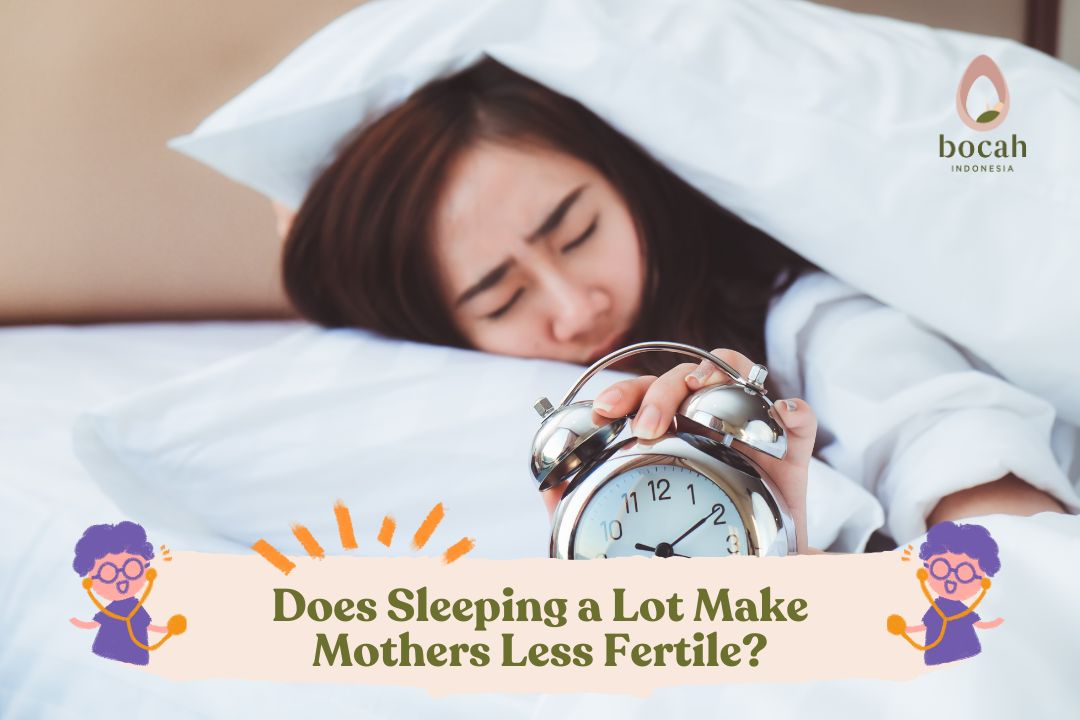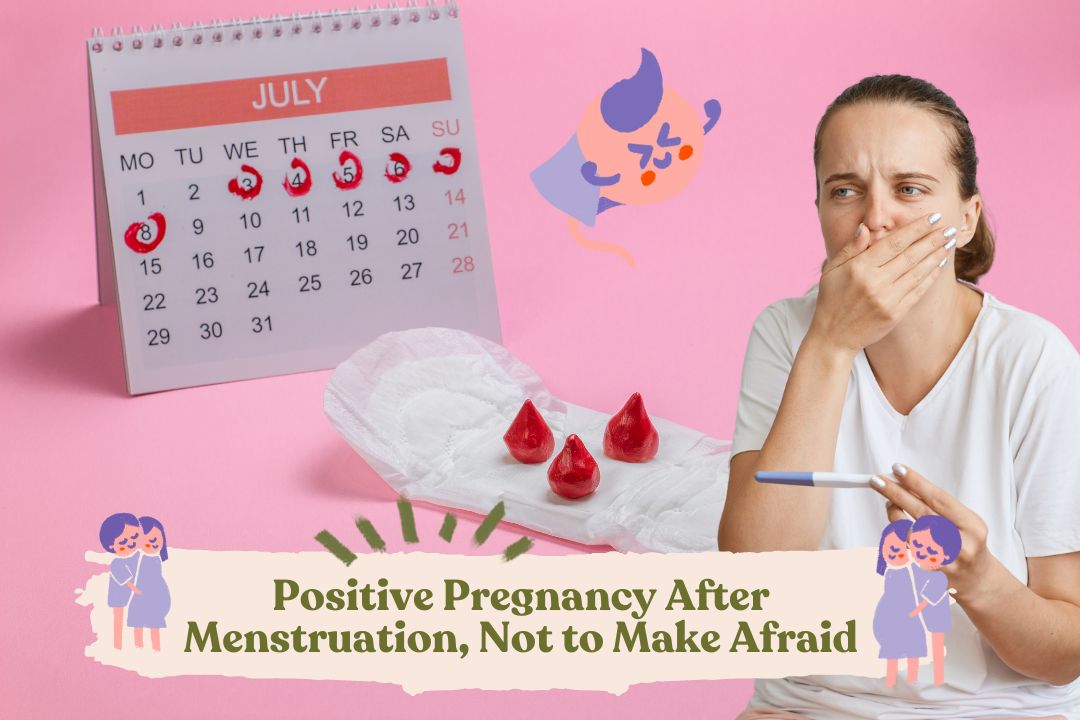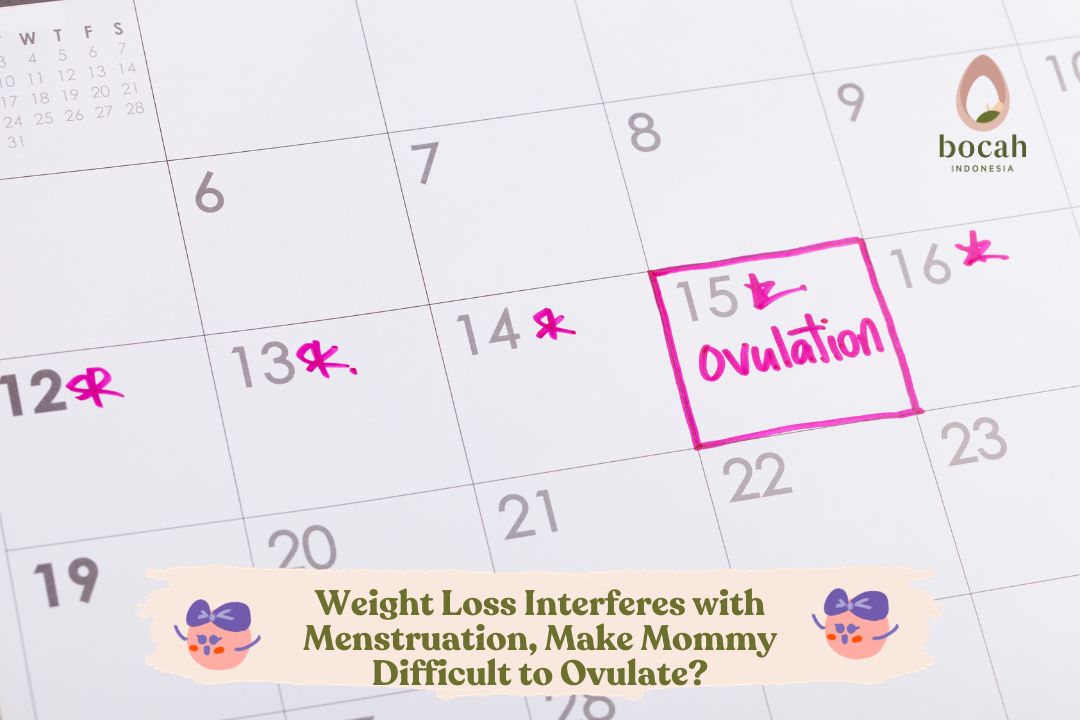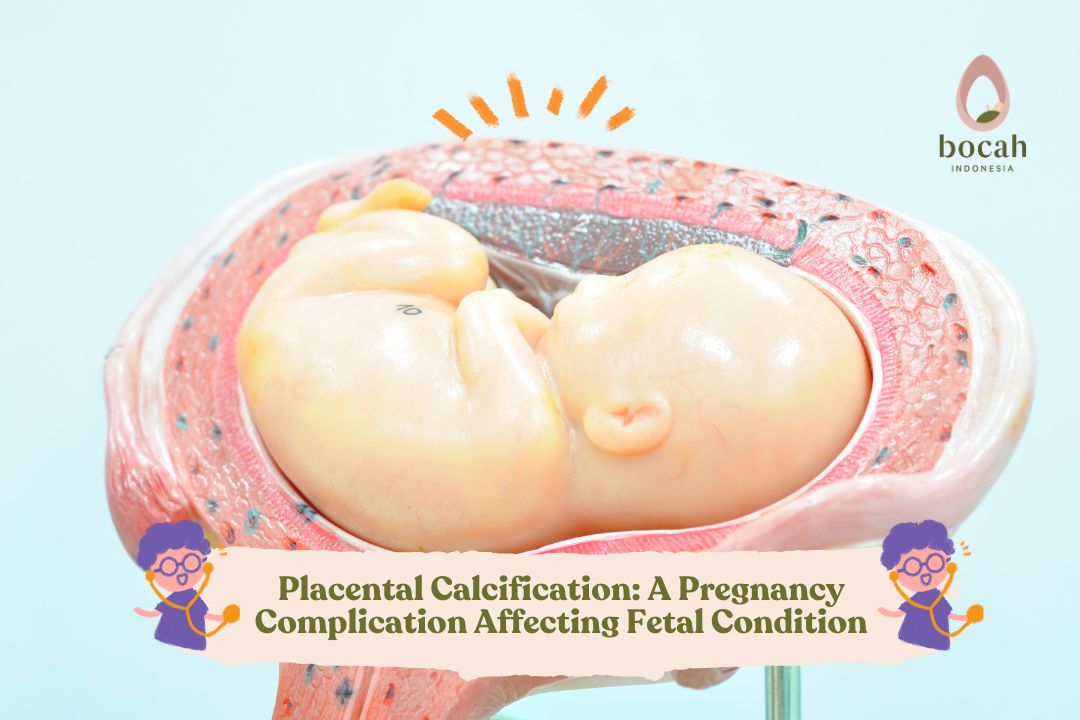Does Getting Plenty of Sleep Make Mothers Less Fertile?

One of the factors that can affect fertility is a poor sleep pattern. Inadequate or insufficient sleep can lead to hormonal disruptions, thereby affecting the fertility of both parents. Lack of sleep can cause men to experience reduced production of testosterone hormone, which plays a crucial role in sperm formation in men. Meanwhile, in women, insufficient sleep can lead to hormonal imbalances that impact the menstrual cycle. However, what if there is too much sleep? Does it affect fertility?
Plenty of Sleep Can Affect Fertility
Generally, the recommended amount of sleep for adults is 7-8 hours per day. Not only does insufficient sleep affect health, but excessive sleep can also have an impact. According to a study published by the American Society for Reproductive Medicine, men who have either too little or too much sleep (less than 6 hours or more than 9 hours) can reduce their fertility chances by 42-43% compared to men who have 8 hours of sleep per day. Conversely, men who get 8 hours of sleep per day have a higher likelihood of successful pregnancy.
Meanwhile, a study published in Fertility and Sterility in South Korea in 2013 found that excessive sleep can lead to difficulties in getting pregnant for women. Research involving 656 women undergoing in vitro fertilization (IVF) programs revealed that a higher likelihood of pregnancy occurred in women who had sufficient sleep of 7-8 hours per night.
On the other hand, women who slept for 9-11 hours had lower chances. Although concrete scientific evidence is lacking at the moment, it’s advisable for both parents to have adequate sleep to increase the chances of pregnancy. This is because fertility is influenced not only by sleep patterns but also by various factors such as unhealthy lifestyles, poor habits, or stress, which can lead to decreased fertility.
Instead of opting for excessive sleep, both parents can use that time to engage in physical activity to enhance fertility. Having enough sleep is indeed important, but engaging in exercise is equally essential. Aside from helping to maintain a healthy weight, exercise can also contribute to improved fertility. Some types of exercises that can be done while trying to conceive include swimming, yoga, or jogging.
Mulai Journey of Hope
Tips for Managing a Healthy Sleep Pattern
Many married couples have less than 8 hours of sleep. However, some couples might have more than 8 hours of sleep. Be cautious, as this condition can lead to health problems, including fertility issues. Now, here are some tips for both fathers and mothers to manage their sleep patterns effectively.
1. Avoid Excessive Overtime
Fathers and mothers with jobs often underestimate the importance of sufficient sleep. However, this is crucial for the body. One way to address this is by trying to reduce overtime at work. The body needs rest too. Reducing overtime also helps the body avoid excessive fatigue, ensuring the required amount of sleep, neither too little nor too much.
2. Steer Clear of Sleep-Disrupting
Habits Many are unaware that certain things disrupt sleep, such as using phones, watching television, or consuming caffeine before bedtime. It’s best to avoid these habits and adopt healthier ones, such as pre-sleep meditation.
3. Manage Stress Effectively
When fathers and mothers feel stressed, cortisol hormone levels in the body increase. This condition prevents relaxation, leading to disrupted sleep patterns. Fathers and mothers can practice yoga to alleviate stress and achieve better sleep patterns.
4. Bask in the Morning Sun
Soaking in the morning sunlight is beneficial for addressing sleep disturbances like insomnia, sleep apnea, and various other health issues. This practice can help fathers and mothers attain better sleep patterns.
Be Mindful of Excessive Sleep Oversleeping can hinder the fertility of fathers and mothers. However, this condition can also be accompanied by other factors. Nevertheless, fathers and mothers can employ the aforementioned methods to attain better sleep quality. Remember, excessive sleep as well as insufficient sleep can impact fertility and overall health.
Source:
- Zhao, F., et al. (2022). Effects of physical activity and sleep duration on fertility: A systematic review and meta-analysis based on prospective cohort studies. Front Public Health. 2022; 10: 1029469.
- Kloss, J.D., et al. (2015). Sleep, Sleep Disturbance and Fertility in Women. Sleep Med Rev. 2015 Aug; 22: 78–87.
- Too Much, Too Little Sleep Hurts Men’s Ability to Get Partners Pregnant. Boston University School of Public Health.
- Wise, L.A., et al. (2016). Sleep and male fecundity in a north American preconception cohort study. Volume 106, Issue 3, Supplement, E79, September 2016.
- Lateef, O.M., et al. (2020). Sleep and Reproductive Health. J Circadian Rhythms. 2020; 18: 1.
- Park, I., et al. (2013). The more, the better? the impact of sleep on IVF outcomes. Volume 100, Issue 3, Supplement, S466, September 2013.
- Fasting While Trying to Conceive? Healthy Meal Ideas for the Entire Month - 04/03/2026
- 12 Foods to Help You Get Pregnant Faster - 03/03/2026
- 3 Juice Recipes for a Pregnancy Program - 26/02/2026













